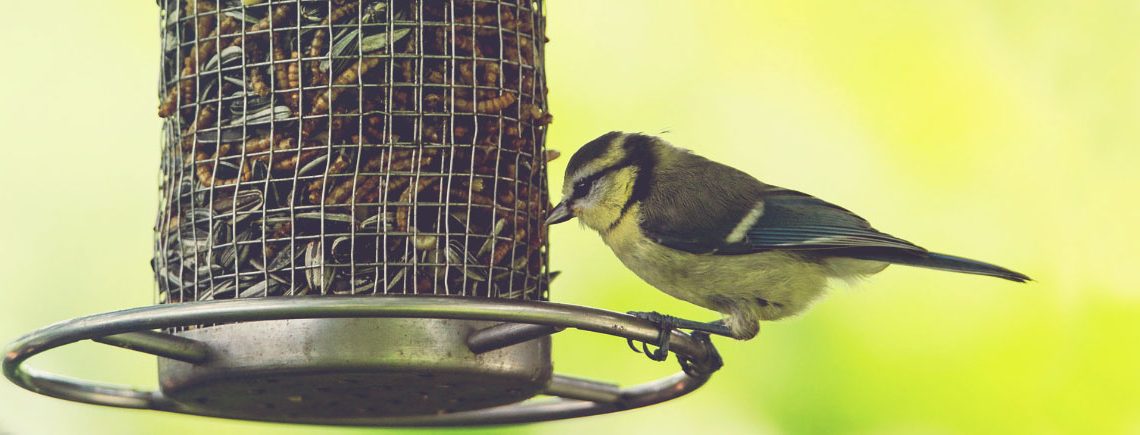Types of Garden Bird Food
Feeding garden birds has become an enjoyable activity for many, and with winter just around the corner, it is more important than ever to give whatever care we can to these wild animals. In cold weather when the ground freezes and foraging food becomes difficult, feeding birds can be the difference between life and death and preserving diverse bird species.
In this blog post, we’ll guide you through the types of bird food, how to attract birds to your garden, and the best way to care for these beautiful animals.
Types of Bird Food
There are lots of different types of food available for wild birds, so how do you know which one to use? Different food offer alternative nutrients and energy sources and attract different species of bird into your garden.
- Peanuts: Popular with the tit family, greenfinches, house sparrow, nuthatches and siskins, peanuts are a great choice as they attract any diverse birds. Peanuts are high in essential protein and provide a high energy source of fats and oils.
- Mixed Seed: A mixed seed blend will provide a variety of seeds, attracting multiple bird species into your garden, while also providing a mix of nutrients. Suitable for year-round feeding.
- Nyjer Seed: This oil rich seed is of a very small size, and is popular with Goldfinches and Siskins, amongst other birds. High in energy Nyjer seed provided a much needed boost during colder weather.

- Sunflower Seeds: An energy rich food source popular with many species. A particular favourite of greenfinches. Can be fed all year round.
- Sunflower Hearts: The husk of the sunflower is removed to reveal the sunflower heart perfect for birds that need a high energy food source with minimum effort. Usually hung from bird feeders or nearby tree branches, sunflower hearts are loved by blue tits, coal tits, great tits, greenfinches and chaffinches.
- Fat Balls & Suet Treats: Often supplemented with seeds, peanuts, berries and meal-worm, fat balls and suet treats will attract many species of bird into your garden.
- Meal-worm: Rich in protein, meal-worms are perfect for supplementing the diets of insect eating birds. Especially important in cold weather when grounds are frozen and access to natural sources can be difficult.
While feeding garden birds is important, it is also essential to provide them with a clean feeding place. You should never feed mouldy seed or peanuts as it may cause birds to become ill, and always wash your feeders, nesting boxes, table and water-baths regularly to keep them free from dirt and prevent illness. Prevent pests and rodents from visiting your garden by clearing away fallen foods from the ground, and positioning feeders out of the reach of pests and vermin.

How to Attract Birds to Your Feeders
- Don’t place bird feeders out in the open. This may deter birds from visiting your feeders due to fear of predators. Instead, opt for areas within a metre or two of a tree or hedge, with some cover, and not too far from your window so you can still watch the action.
- Stay consistent. You might not attract many birds the first time round, but once they discover your feeders, it won’t be long until a flock will come visiting! They will begin to rely on your food source, so it’s important to keep putting out food throughout the year, taking special care during the winter.
- Offer variety. More variety, more diversity! A high quality seed mix and some peanuts will attract many birds species, but adding specialist foods like mealworms, fat balls and suet treats to your feeders caters for a wider range of dietary requirements. This will entice a more diverse range of birds to your garden!
- Don’t leave food out food out for too long. Food left in feeders for a long time can get mouldy. With Irish weather known for being wet and damp, it won’t take long before the food becomes unsuitable for garden birds. Provide just enough food for a short period.
- Provide water. Water is just as important as food for our garden birds, and fresh water can be difficult to locate during the cold weather. Make sure to provide plenty of fresh water in your garden for both bathing and drinking to help gardens birds conserve their energy.
Any more questions? Got any more questions about feeding garden birds? Be sure to ask one of expert Pet Care Advisors at your local Petmania store today.
